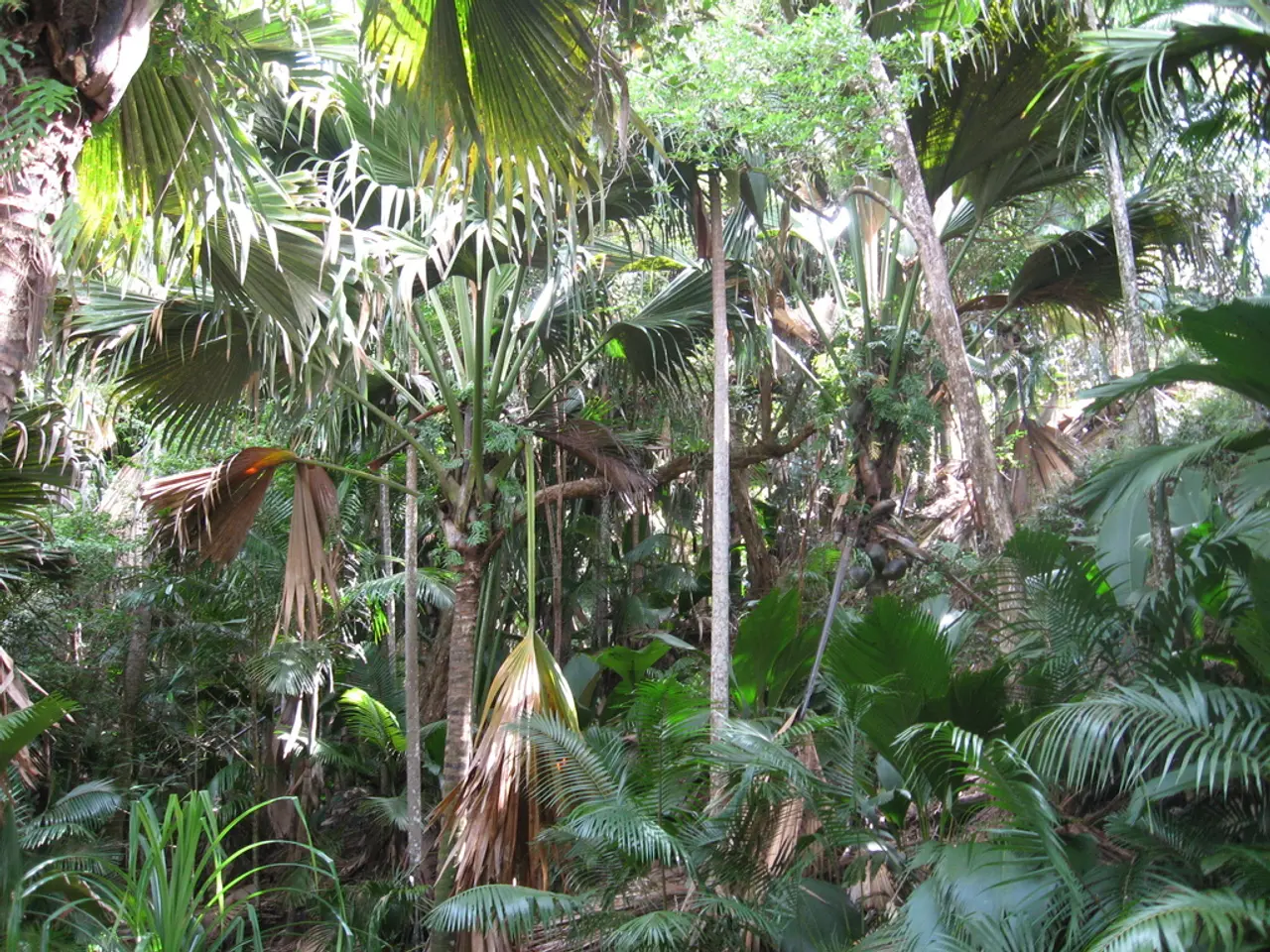Catastrophic Effect on Soil and Vegetation: Salt's Destructive Power
Salt, a common substance in many household products and de-icing agents, can have a significant impact on plants. Here's what you need to know to protect your garden from salt-related damage.
Salt can impede a plant's ability to absorb essential nutrients by interfering with the uptake of necessary nutrients. Sodium ions, in particular, can cause soil compaction, decreased drainage, and reduced aeration, negatively impacting soil quality.
Sodium and chloride ions can displace other mineral nutrients in the soil, such as potassium and phosphorus, leading to nutrient deficiencies. This displacement can cause plants to absorb chloride and sodium instead, which can disrupt vital processes like photosynthesis and chlorophyll production.
Chloride ions can travel to the leaves, where they can cause leaf burn and die-back when they reach toxic levels. Salt in the soil can cause dehydration and drought-like conditions by absorbing water, leading to reduced plant growth and, if not corrected, plant death.
The impact of salt on plants can vary depending on factors such as plant type, the type of salt, the volume of freshwater available, and the movement of runoff. However, even a small amount can cause dehydration and drought-like conditions in plants, leading to reduced growth and other negative effects.
High levels of sodium in the soil can destroy the structure of fine- and medium-textured soils, decreasing porosity and preventing sufficient air and water for plant growth. This can affect root growth and water uptake.
Fortunately, there are ways to mitigate the damage caused by salt. Understanding the impacts of salt on plants and implementing salt application management strategies can help protect plants and reduce injury. Products that help repair salt damage in soil for plants include using mulch layers (such as grass clippings, leaves, bark mulch, or cardboard) to block light and prevent weed regrowth, and employing competitive plants like potatoes or fast-growing ground covers to reduce weed impact.
It's important to note that chemical products like vinegar or salt are harmful to soil and plants and are often prohibited. De-icing salts without sodium are generally safer for plants than sodium chloride.
The effects of salt on plants may not be immediately apparent, with symptoms sometimes appearing years later or during hot and dry weather. It's crucial to be vigilant and take preventative measures to ensure the health of your plants.
In conclusion, while salt is a common substance, it can have harmful effects on plants. By understanding the impacts of salt on plants and implementing appropriate management strategies, you can protect your garden and maintain a healthy, thriving ecosystem.






